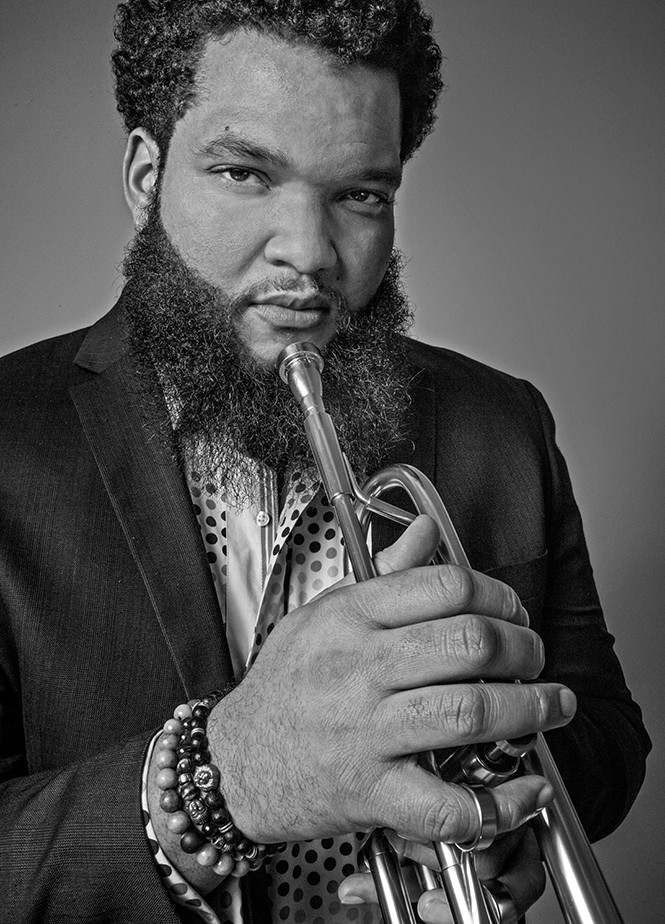 |
| Kris Johnson |
Monday, January 27, 2020
THE KRIS JOHNSON QUARTET TREATS CUBE AUDIENCE TO IMPECCABLY EXECUTED STANDARDS & ORIGINALS
Monday, January 20, 2020
THE EMMETT COHEN TRIO MODERNIZES BENNY GOLSON'S HITS AT ST. CECILIA MUSIC CENTER
 |
| Pianist Emmett Cohen |
Hearing young jazz musicians perform with a
jazz legend surely makes for a joyful concert. That’s how I felt Thursday night at St. Cecilia Music Center in Grand Rapids,
MI, listening to the Emmett Cohen Trio with special guest Benny Golson, a
saxophonist whose career spans six decades, including careers with the Dizzy Gillespie Big Band, the Jazz Messengers, and The Jazztet. He's also worshipped globally as one of jazz’s top all-time composers. For
several years now, Cohen, an award-winning jazz pianist, has made albums
under the moniker Masters Legacy Series with jazz greats such as George Coleman, Ron
Carter, Albert “Tootie” Heath, and Jimmy Cobb. Cohen established the series to celebrate the musician's contribution to jazz and to document through recordings and video interviews. At the St. Cecilia Music Center,
Golson was the attraction, but Cohen’s trio—bassist Russell Hall and drummer Evan
Sherman—carried the concert by rejuvenating Golson's work. Before Golson joined the trio, they performed one
of Cohen’s originals, showing they have been working together long enough to
understand every detail of each other's musical psyche. The trio led with the
standard Time on My Hands, and Cohen's playing was vivid and genteel, equal to Tommy Flanagan's and Ahmad Jamal's style. Sherman played
drums as though he’d rubbed elbows with Art Blakey’s spirit, and Hall’s bass had
the audience spellbound the entire concert. As for Golson, at 90, he looked healthy, and his
memory was sharp. He talked way more than he played, explaining the story behind each song performed. He did,
however, warn the audience that he loves talking. The stories nonetheless were entertaining, particularly the one about how Art Blakey tricked him into
staying with the Messengers longer than he planned. When Golson soloed on Blues
March and Killer Joe, he channeled his younger self.
Honestly, Cohen’s trio modernizing Golson’s classics would’ve made for a terrific
concert by itself. Or Golson spending two-hours talking about his life in music
would’ve worked independently as well. Thankfully, the trio modernizing Golson’s work and his storytelling resulted in a gratifying jazz concert.
Subscribe to:
Posts (Atom)